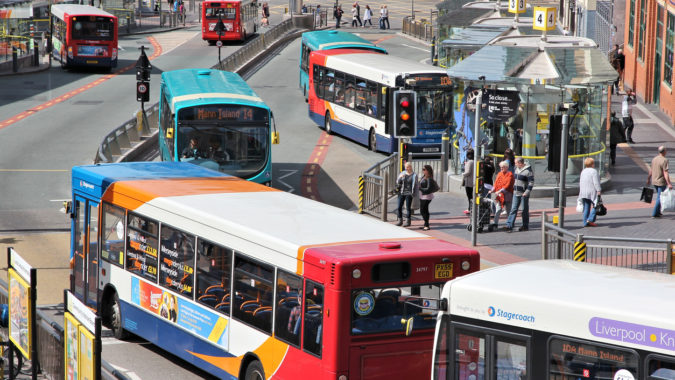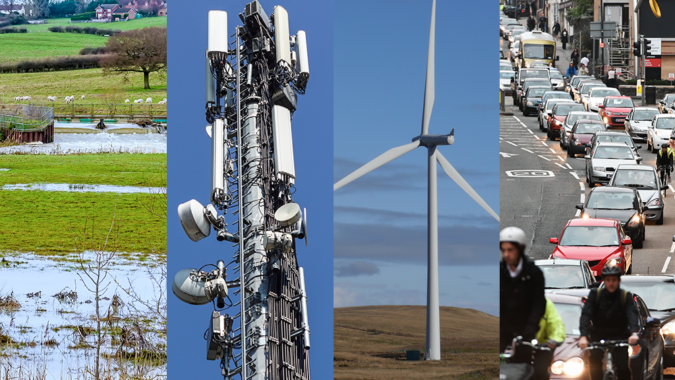In July, we published our inaugural National Infrastructure Assessment. A world-first in size and scope, it has sparked international interest, with a growing number of countries taking inspiration from the vision we have set out for our nation’s infrastructure.
Last month, I was pleased to represent the Commission at the Australian British Infrastructure Catalyst, held in Sydney and Melbourne over the course of four days. Now in its fourth year – and alternating between the UK and Australia – it is designed to facilitate and promote the exchange of ideas and experience in major infrastructure projects.
The British delegation included Chair of Network Rail Sir Peter Hendy, London’s Transport Commissioner David Brown, and HS2’s Strategic Technical Adviser Professor Andrew McNaughton. Our Australian hosts included industry leaders, as well as ministers, and federal and state officials.
One of the key challenges faced by our counterparts down under is well-known in the UK. Just like many of our major cities, Sydney and Melbourne are seeing their populations grow at breakneck speed. Both cities are currently building new metro systems similar to Crossrail. There was a brilliant interchange of views and real similarities in the drivers for the projects. The issues of linking transport to housing and urban regeneration, getting public buy-in and capturing uplifts in land value are a common agenda in both countries.
There were good debates about the positive societal impacts transport projects can bring, with two points in particular providing useful food for thought. The first of these is that new transport infrastructure can sometimes bring unexpected benefits, with the development of Ashford and Canterbury arising as a result of HS1 cited as a UK example. It was suggested that a study of these unintended consequences might help us improve the methodology for assessing new projects in the future. The second was Infrastructure Victoria’s experience of using citizens’ juries to help them assess priorities and develop their proposals, which appears to have been a considerable success. Deliberative democracy is something that the Commission hopes to explore in the future, so we can look to examine their model in more detail and engage further.
There are, however, areas where the Australian and British infrastructure policies and challenges wildly differ. On energy, for example, bitter confusion reigns in the Australian market as the policy focus shifts from protecting the coal sector, to refusing gas exploration, and from seeking to have the lowest international energy costs to tackling carbon emissions. All this means investment is stalling and at a time when the challenges couldn’t be greater. Here, we benefit from interconnectors which transfer energy supplies from the European to the British market – for the obvious reason of the sheer distance between Australia and other countries, there is no equivalent of this available down under.
Another challenge caused at least in part by geography is broadband connectivity – right now, the Australian government is investing an incredible $52billion to create a National Broadband Network, not least because of the country’s size. I think it doubtful that this will be a model that countries will look to follow – especially as this may even reduce the likelihood of private investment in Australia’s 5G mobile networks, if there is a continued assumption that the public sector will step in.
But for all the similarities and differences, there is one area whether neither Australia nor the UK yet has the answer, and that is freight. In both countries, we have not yet found a simple solution for reducing the number of journeys while delivering the goods that companies and consumers have now come to expect to arrive where they want, when they want. There were discussions at the Infrastructure Catalyst about a possible large-scale delivery “consolidation” trial in one Australian city, to see how many journeys could be cut by combining deliveries. Here at the National Infrastructure Commission, our study into the industry is due to report in Spring next year and will particularly examine how best to support freight operators to reduce their carbon footprint.
Overall it was fascinating to hear about the challenges and opportunities that Australia faces, and to compare and contrast those with the issues we face here in the UK. And I was particularly proud to showcase the work of the National Infrastructure Commission – our assessment and our recent studies, particularly our Data for the Public Good report and how the Government’s acceptance of the majority of our recommendations could lead to the UK’s first Digital Twin. Our ongoing work on freight, and our new study into the resilience of our infrastructure, were also of particular interest to the Australian delegates.
As we look to cement a strategic, cross-sectoral approach to infrastructure policy, I hope this fosters ever-greater international interest in what we are doing, and how we can become a world-leader in planning for and delivering not just short-term projects but also meeting the UK’s longer-term infrastructure needs.
Andy Green is a Commissioner for the National Infrastructure Commission.



